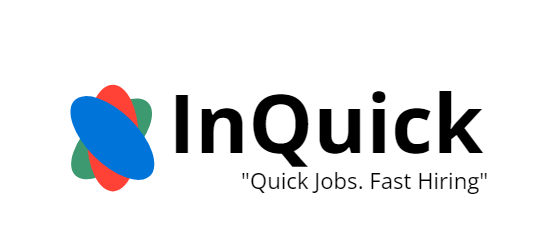- Afghanistan
- Åland Islands
- Albania
- Algeria
- American Samoa
- Andorra
- Angola
- Anguilla
- Antarctica
- Antigua and Barbuda
- Argentina
- Armenia
- Aruba
- Australia
- Austria
- Azerbaijan
- Bahamas
- Bahrain
- Bangladesh
- Barbados
- Belarus
- Belgium
- Belize
- Benin
- Bermuda
- Bhutan
- Bolivia
- Bonaire, Sint Eustatius, and Saba
- Bosnia and Herzegovina
- Botswana
- Bouvet Island
- Brazil
- British Indian Ocean Territory
- British Virgin Islands
- Brunei
- Bulgaria
- Burkina Faso
- Burundi
- Cambodia
- Cameroon
- Canada
- Cape Verde
- Cayman Islands
- Central African Republic
- Chad
- Chile
- China
- Christmas Island
- Cocos [Keeling] Islands
- Colombia
- Comoros
- Cook Islands
- Costa Rica
- Croatia
- Cuba
- Curaçao
- Cyprus
- Czech Republic
- Congo - Kinshasa
- Denmark
- Djibouti
- Dominica
- Dominican Republic
- Timor-Leste
- Ecuador
- Egypt
- El Salvador
- Equatorial Guinea
- Eritrea
- Estonia
- Ethiopia
- Falkland Islands
- Faroe Islands
- Fiji
- Finland
- France
- French Guiana
- French Polynesia
- French Southern Territories
- Gabon
- Gambia
- Georgia
- Germany
- Ghana
- Gibraltar
- Greece
- Greenland
- Grenada
- Guadeloupe
- Guam
- Guatemala
- Guernsey
- Guinea
- Guinea-Bissau
- Guyana
- Haiti
- Heard Island and McDonald Islands
- Honduras
- Hong Kong SAR China
- Hungary
- Iceland
- India
- Indonesia
- Iran
- Iraq
- Ireland
- Isle of Man
- Israel
- Italy
- Côte d’Ivoire
- Jamaica
- Japan
- Jersey
- Jordan
- Kazakhstan
- Kenya
- Kiribati
- Kosovo
- Kuwait
- Kyrgyzstan
- Laos
- Latvia
- Lebanon
- Lesotho
- Liberia
- Libya
- Liechtenstein
- Lithuania
- Luxembourg
- Macau SAR China
- Macedonia
- Madagascar
- Malawi
- Malaysia
- Maldives
- Mali
- Malta
- Marshall Islands
- Martinique
- Mauritania
- Mauritius
- Mayotte
- Mexico
- Micronesia
- Moldova
- Monaco
- Mongolia
- Montenegro
- Montserrat
- Morocco
- Mozambique
- Myanmar [Burma]
- Namibia
- Nauru
- Nepal
- Netherlands
- Netherlands Antilles
- New Caledonia
- New Zealand
- Nicaragua
- Niger
- Nigeria
- Niue
- Norfolk Island
- North Korea
- Northern Mariana Islands
- Norway
- Oman
- Pakistan
- Palau
- Palestinian Territories
- Panama
- Papua New Guinea
- Paraguay
- Peru
- Philippines
- Pitcairn Islands
- Poland
- Portugal
- Puerto Rico
- Qatar
- Congo - Brazzaville
- Réunion
- Romania
- Russia
- Rwanda
- Saint Barthélemy
- Saint Helena
- Saint Kitts and Nevis
- Saint Lucia
- Saint Martin
- Saint Pierre and Miquelon
- Saint Vincent and the Grenadines
- Samoa
- San Marino
- São Tomé and Príncipe
- Saudi Arabia
- Senegal
- Serbia
- Serbia and Montenegro
- Seychelles
- Sierra Leone
- Singapore
- Sint Maarten
- Slovakia
- Slovenia
- Solomon Islands
- Somalia
- South Africa
- South Georgia and the South Sandwich Islands
- South Korea
- South Sudan
- Spain
- Sri Lanka
- Sudan
- Suriname
- Svalbard and Jan Mayen
- Swaziland
- Sweden
- Switzerland
- Syria
- Taiwan
- Tajikistan
- Tanzania
- Thailand
- Togo
- Tokelau
- Tonga
- Trinidad and Tobago
- Tunisia
- Turkey
- Turkmenistan
- Turks and Caicos Islands
- Tuvalu
- U.S. Virgin Islands
- Uganda
- Ukraine
- United Arab Emirates
- United Kingdom
- United States
- U.S. Minor Outlying Islands
- Uruguay
- Uzbekistan
- Vanuatu
- Vatican City
- Venezuela
- Vietnam
- Wallis and Futuna
- Western Sahara
- Yemen
- Zambia
- Zimbabwe
AI Career Opportunities: Unlocking the Future of Work

AI Career Opportunities: Unlocking the Future of Work
AI Career Opportunities: Unlocking the Future of Work
Artificial Intelligence (AI) is rapidly transforming industries across the globe, revolutionizing how businesses operate, and opening up a plethora of career opportunities. As AI continues to evolve, so do the career paths available to those interested in pursuing a future in this dynamic and cutting-edge field. In this article, we’ll explore the various AI career opportunities, the skills required to succeed, and how to make the most of this exciting sector.
Why AI Careers Are on the Rise
The growth of AI is undeniable. It’s being integrated into every aspect of our lives, from personal assistants like Siri and Alexa to advanced AI-powered healthcare tools, self-driving cars, and smart cities. As AI technology advances, the demand for skilled professionals in AI-related fields is skyrocketing. Companies are looking for experts who can create, implement, and manage AI solutions to optimize their operations, improve customer experiences, and drive innovation.
The AI job market is not limited to just software developers or engineers. The interdisciplinary nature of AI means there are roles for people with backgrounds in computer science, engineering, data analysis, business, and even the arts and humanities.
Top AI Career Opportunities
Here’s a breakdown of the top AI career opportunities for individuals seeking to break into the field:
1. AI/Machine Learning Engineer
Job Description: AI engineers design and develop AI models and systems, working with machine learning algorithms to create predictive models and intelligent systems.
Skills Required: Proficiency in programming languages (Python, Java, C++), knowledge of machine learning algorithms, data manipulation, and experience with frameworks like TensorFlow and PyTorch.
Industries: Technology, healthcare, finance, robotics, and autonomous systems.
2. Data Scientist
Job Description: Data scientists use AI and machine learning algorithms to analyze and interpret complex datasets, providing insights that guide business decisions.
Skills Required: Strong background in statistics, machine learning, data analysis, and data visualization tools (such as Tableau or Power BI). Proficiency in programming languages like Python and R.
Industries: Healthcare, finance, e-commerce, sports analytics.
3. AI Research Scientist
Job Description: AI researchers work on pushing the boundaries of artificial intelligence, developing new algorithms, models, and techniques. They often contribute to academic papers and collaborate with universities, research labs, and corporations.
Skills Required: Advanced knowledge of AI, deep learning, and natural language processing (NLP), combined with a strong academic background, often requiring a Ph.D. in computer science or a related field.
Industries: Academia, research institutes, tech companies.
4. Robotics Engineer
Job Description: Robotics engineers design, build, and maintain robots powered by AI, creating machines that can perform tasks autonomously or assist humans in complex environments.
Skills Required: Expertise in AI, machine learning, robotics, and hardware engineering. Proficiency in programming languages like Python, C++, or MATLAB.
Industries: Manufacturing, healthcare, military, and automation.
5. Natural Language Processing (NLP) Engineer
Job Description: NLP engineers develop algorithms that enable machines to understand, interpret, and respond to human language. This role focuses on improving AI systems such as chatbots, virtual assistants, and translation tools.
Skills Required: Expertise in linguistics, deep learning, neural networks, and proficiency in Python, TensorFlow, and other AI tools.
Industries: Customer service, healthcare, translation services, media.
6. AI Product Manager
Job Description: AI product managers work with AI development teams to bring AI-driven products to market. They focus on understanding customer needs, defining product features, and ensuring that AI solutions align with business goals.
Skills Required: Strong business acumen, excellent communication skills, a deep understanding of AI technology, and experience in product management.
Industries: Tech companies, startups, and software development firms.
7. AI Ethicist
Job Description: As AI technology advances, so do concerns around privacy, bias, and fairness. AI ethicists work to ensure that AI applications are designed and deployed ethically, taking into account social, legal, and moral considerations.
Skills Required: A background in ethics, law, social sciences, and AI, with a focus on understanding the ethical implications of AI.
Industries: Technology, government, research institutions, and non-profits.
8. AI Software Developer
Job Description: AI software developers build applications and systems that leverage AI technologies, working on both the front-end and back-end of AI-driven software solutions.
Skills Required: Expertise in software development, AI libraries, and algorithms, and familiarity with frameworks like TensorFlow, Keras, and PyTorch.
Industries: Software development, AI startups, and large tech companies.
Key Skills to Succeed in AI Careers
To succeed in the AI field, there are several critical skills you’ll need to develop:
1. Programming and Coding
A strong foundation in programming is a must. Familiarity with languages like Python, Java, C++, and R is essential for working with AI models and algorithms.
2. Mathematics and Statistics
AI relies heavily on concepts from mathematics, particularly linear algebra, probability, calculus, and statistics. These concepts are the backbone of machine learning algorithms and data analysis.
3. Machine Learning and Deep Learning
Understanding machine learning (ML) and deep learning (DL) algorithms is key. Mastering frameworks such as TensorFlow, Keras, PyTorch, and Scikit-learn will allow you to build robust AI models.
4. Data Handling and Analysis
AI professionals work with vast amounts of data, so skills in data analysis, data cleaning, and data visualization are crucial. Familiarity with tools like Pandas, NumPy, Tableau, and Power BI can be helpful.
5. Problem-Solving
AI careers often involve finding innovative solutions to complex problems. A strong problem-solving mindset, paired with creativity and critical thinking, is invaluable.
6. Communication and Collaboration
Working in AI often means collaborating with teams across various disciplines. Strong communication skills help you explain complex technical concepts to non-technical stakeholders.
How to Get Started in AI
If you’re interested in pursuing a career in AI, here are some steps to get started:
- Take AI Courses: Enroll in AI and machine learning courses from platforms like Coursera, edX, or Udacity to build foundational knowledge.
- Learn Programming: Master programming languages like Python and R by completing coding exercises and projects.
- Work on AI Projects: Build AI projects to apply what you’ve learned and create a portfolio of your work.
- Networking: Join AI communities, attend webinars, and network with industry professionals on platforms like LinkedIn.
- Pursue an Advanced Degree: Consider pursuing a master’s or Ph.D. in computer science or AI to gain in-depth expertise in the field.
Conclusion
AI is more than just a technological advancement; it’s shaping the future of nearly every industry. From AI engineers to AI ethicists, the career opportunities in this field are vast and varied. By acquiring the necessary skills, staying updated with the latest advancements, and building your experience, you can unlock a fulfilling and exciting career in AI.
Start your AI career today and be part of the next wave of technological innovation that is transforming the world.
For more insights on AI careers, explore related articles and resources on AI job market trends and AI skills development.

 by InQuick
by InQuick



